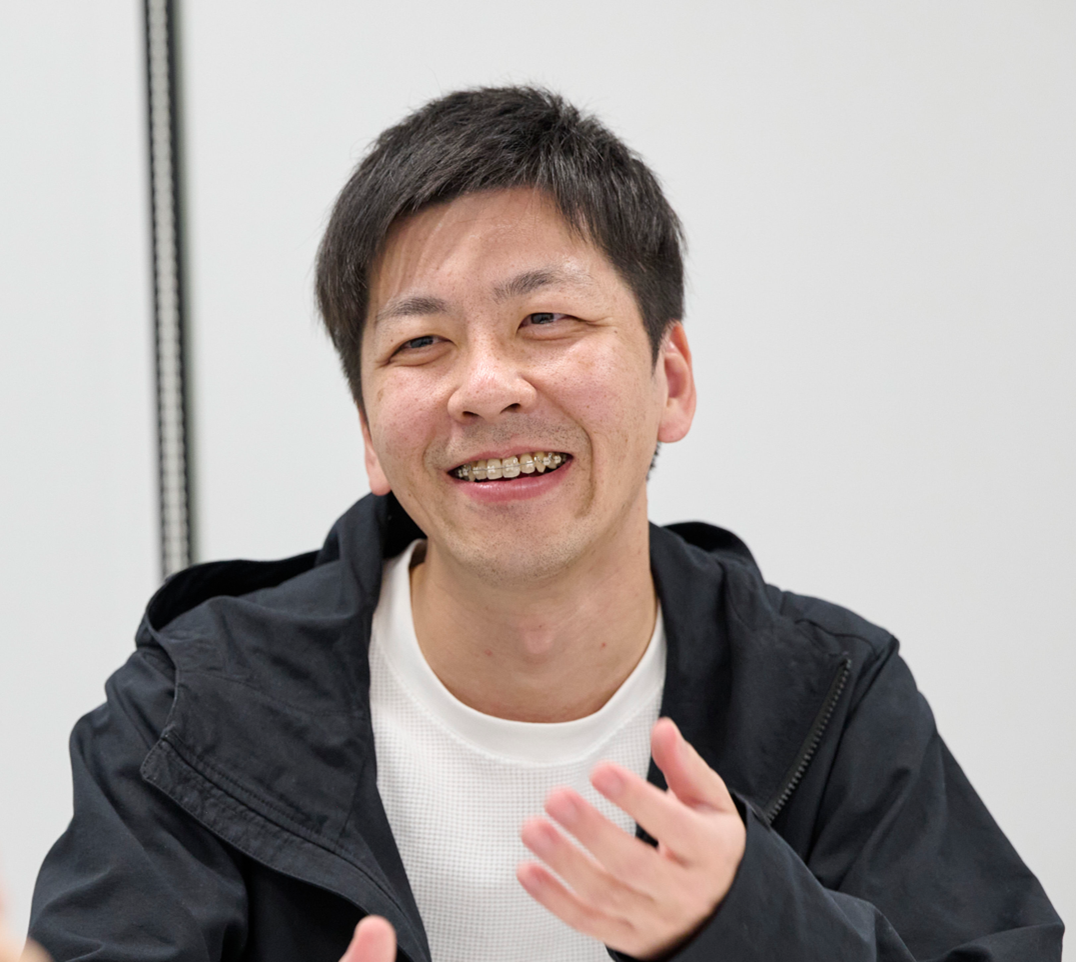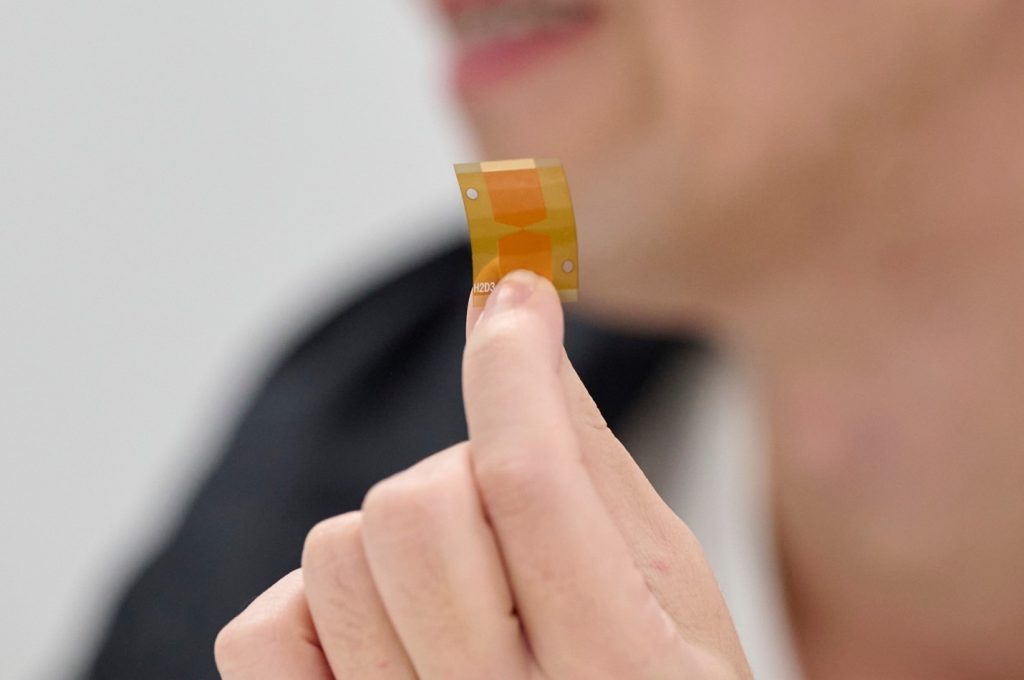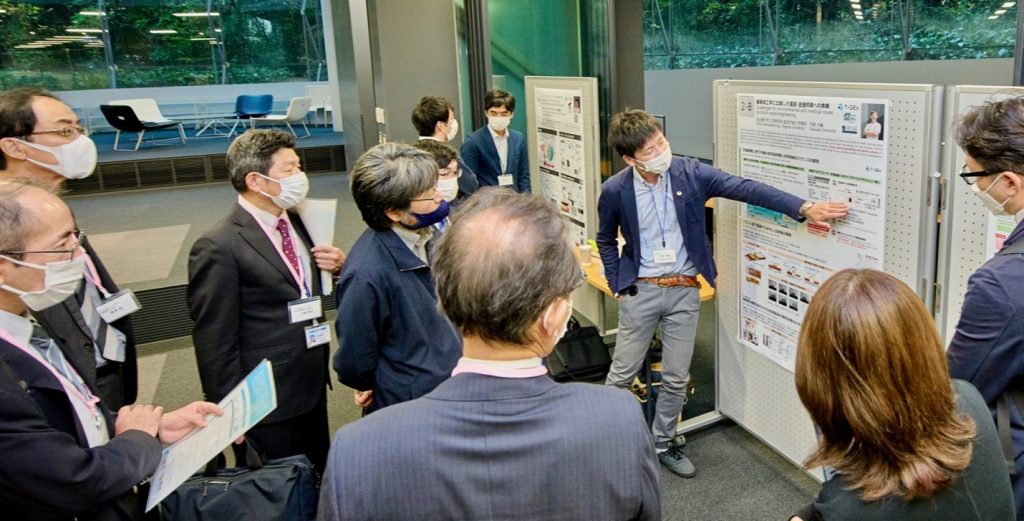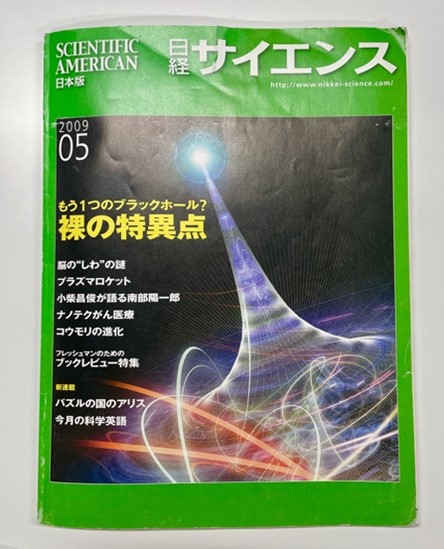
Following two years as a T-GEx fellow, Dr. Ichihara, a scientist in the field of aerospace engineering who specializes in supersonic fluid dynamics involving shock waves and ionization and plasma reactions, took up a post as an Associate Professor at Kyushu Institute of Technology in April 2024.
── Congratulations on your promotion! Before you move on, please tell us what your feelings are.
Starting my academic career at Nagoya University, I diligently worked in the same laboratory under my supervisor's guidance throughout my undergraduate years.
Now, as I finally graduate from this phase of my career, I am filled with joy and excitement to forge my own path forward.
── What are your thoughts about participating in T-GEx?
Working with such brilliant colleagues who are around the same age but specialize in different fields was a huge advantage, of course. I was part of a group where everyone operated at a higher level than I did, which made me feel nervous but also motivated. I received updates through Slack, such as notifications about papers being published in a journal and being cited by numerous media outlets. I suppose it was my interactions with everyone that helped me determine the level and scale of research I should aim for.
── What do you mean specifically by the "level and scale" of research?
My next step is to attend an engineering university. Unlike universities like Nagoya University, which have a broader focus, specialized institutes concentrate on a limited number of fields. One challenge in such an environment is maintaining the quality of my work independently. It was reassuring to find direct precedents referencing criteria on this issue: if the issues one is pursuing are not easy or trivial, but rather essential problems of the sort everyone at T-GEx is working on; whether or not the work is confined to just one's own specialized field; if the research has a significant impact on society; and whether or not there is a path to scaling up, including joint research with corporate entities.
── Why did you apply to T-GEx?
The biggest reason was the support in funding research. I have been working in the FOREST (Fusion Oriented REsearch for disruptive Science and Technology) program, which launched in April 2021, but the topic of the applied research was way outside of my field of expertise, so the content was rather challenging. I was worried about my chances making it through the Stage Gate process and continuing with research over the longer term. At T-GEx, the fact I could secure a budget for specialized themes such as plasma physics and supersonic fluid dynamics was attractive.

"Patch syringe," a FOREST research theme. The principle of shock waves is applied to trigger the syringe, injecting the drug into the body. Ichihara says he hopes to get to the clinical trial stage by 2027.
── Do you feel your interests expanding as you continue to further deepen your expertise?
Yes, indeed. However, in my case, it hasn't been many years since I earned my doctorate, so perhaps it would have been better to first develop greater expertise before turning my attention to applications. I regret not clearly deciding on one path or the other.
── A quarter of T-GEx Fellows have also successfully applied to FOREST, as you have. Returning to what you just said, was it difficult to balance both?
To tell you the truth, I feel like I may have gone about things the wrong way. The basic approach in my lab is for assistant professors to have no students. It was quite difficult to pursue two research themes by myself. I spent a large portion of my research funds on supplies, but looking back now, I think I should have hired some staff.
── You also had a small child, and your personal life was busy as well.
I don't think raising children is that much of a burden. On the contrary, it would have been harder if I did research exclusively. Even so, I'd have been better off adapting my own schedule to the cycle of dropping off and picking up my child at nursery school, meals, bath, and bedtime.
It may depend on the field, but I believe research work is well-suited for individuals raising children due to its flexibility in scheduling. However, maintaining a balance between research and childcare is crucial. While preparing for the FOREST examination, I would return to the university after putting my child to bed, staying up all night to conduct experiments. Under such circumstances, when my family tried to engage in conversation, I frequently provided non-committal responses. This led to a downward spiral of irritation for both my family and myself, rendering the situation unsustainable.
── Even under those circumstances, you were actively involved as the Secretary Leader of the T-GEx Exhibition of Research Achievements 2022
The T-GEx program involves a variety of initiatives, and at first, I was pretty indiscriminate about choosing and eager to try anything I could (laughs).
I realize now that I should have thought through it a bit more, but fortunately I had a lot of help from my T-GEx colleagues and the URAs who supported me.

Dr. Ichihara presents ongoing research at T-GEx Exhibition of Research Achievements 2022, for which he served as Secretary Leader. The research attracted the interest of numerous participants.
── After your experience at T-GEx, what are your future plans?
I am interested in solving social issues. As for the scope of my own research, rather than being able to explain some phenomenon or another, I want to propose solutions that are useful from an engineering standpoint. I'm not sure if that will be in the field of medical care that I'm currently working in, or the environment...but I want to succeed in at least one of these areas.

The May 2009 issue of Nikkei Science, which inspired Dr. Ichihara to become a researcher. He was so fascinated by the ten-page special feature on plasma rockets that he read it over and over again. His research on a "patch syringe" was finally reported in the March 2024 issue of this magazine, for which he holds great affection.
── The T-GEx program also includes support in which veteran researchers serve as mentors and provide career advice. How did you utilize this support?
The biannual interviews served as a vital platform for soliciting feedback from researchers beyond my immediate supervisor. Given my familiarity limited to my own lab, these sessions offered me a broader perspective, exposing me to diverse research methodologies and lab cultures. However, since my mentors were in other fields of expertise and from a different generation, I probably wasn't able to fully utilize the assistance in terms of career counseling.
── What is the outlook for your career going forward?
My goal is to become a leader who nurtures the next generation. While university researchers are inherently educators, I acknowledge that this is an aspect I currently lack. While networking seminars are valuable, I believe it's equally crucial to pass on the networks we've cultivated to the upcoming generation. I'm committed to ensuring that not only my own generation but also those that follow, experience fulfillment and success.
──That's an important point. Although conditions for Japanese researchers today may be challenging, I hope today's young researchers gradually enact positive change as they assume leadership roles.
In conclusion, what message would you like to convey to the T-GEx Fellows and Associates?*
First of all, I want to express my heartfelt gratitude.
I have built an extensive network of contacts, broadened my horizons, and made many meaningful friends. If I chance upon a paper authored by any of you, it would bring me immense joy to cheer for your success, just as I hope you would do for me. Despite physical distances, let's continue to strive together, giving our utmost in our respective endeavors.
* T-GEx Fellows are researchers from Nagoya University and Gifu University; T-GEx Associates refers to researchers from affiliated academic institutions in the Tokai region.
Interview: Dr. KUMASAKA Mayuko (URA of Academic Research & Industry-Academia-Government Collaboration, Nagoya University)
Text: Dr. MARUYAMA Megumi, Dr. YOSHIDA Aruto (URA of Academic Research & Industry-Academia-Government Collaboration, Nagoya University)

